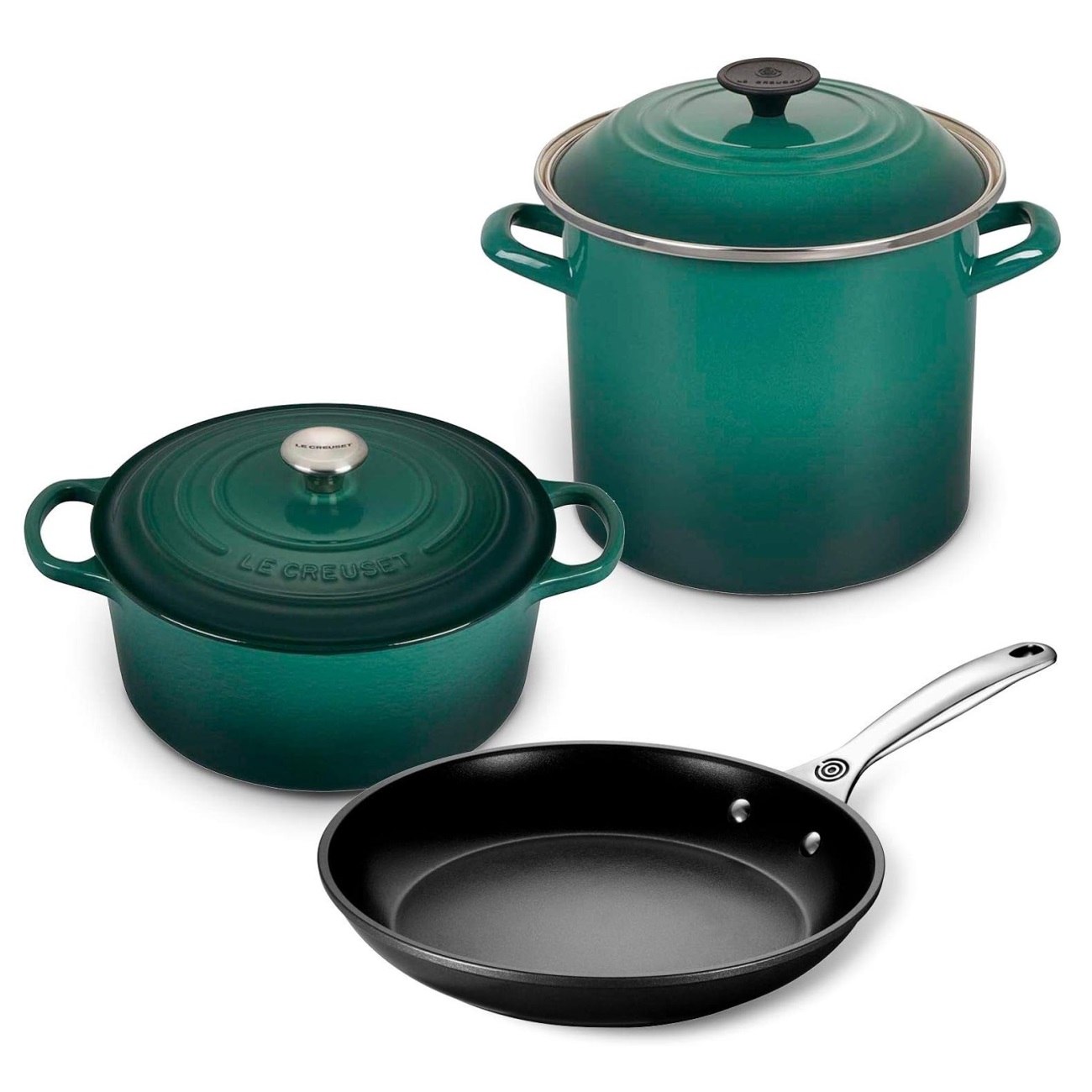Boost Your Immunity with Gluten-Free Butternut Squash and Sweet Potato Chowder: A Nutritious Delight for Whole Health
In the world of nutrition, few dishes combine flavor and health benefits as seamlessly as our Gluten-Free Butternut Squash and Sweet Potato Chowder. This wholesome chowder is not only a comforting meal on a chilly day but also a powerhouse of nutrients that support your immune system, digestive health, and overall well-being. The Whole Health Flexi-plan diet emphasizes a balanced approach to eating, and this chowder fits perfectly into that philosophy. In this article, we will delve into the health benefits of each ingredient, explore their nutritional contributions, and highlight why this chowder is an excellent choice for anyone looking to enhance their health through diet.
The Nutritional Powerhouse of Butternut Squash
Butternut squash, a staple in many autumn dishes, is much more than just a flavorful ingredient. It is packed with essential nutrients that offer numerous health benefits.
Vitamin A and Eye Health
One of the most notable nutrients in butternut squash is vitamin A, with a single cup providing over 400% of the recommended daily intake. Vitamin A is crucial for maintaining healthy vision, particularly in low-light conditions. It also plays a significant role in immune function, helping to protect the body against infections.
Antioxidant Properties
Butternut squash is rich in antioxidants, including beta-carotene, which the body converts into vitamin A. Antioxidants combat free radicals in the body, reducing oxidative stress and lowering the risk of chronic diseases such as heart disease and cancer.
Digestive Health
The fiber content in butternut squash supports a healthy digestive system by promoting regular bowel movements and preventing constipation. A diet high in fiber is also linked to a lower risk of developing colon cancer.
Sweet Potatoes – A Nutrient-Dense Addition
Sweet potatoes add a delightful sweetness and creamy texture to the chowder, but their benefits extend far beyond flavor.
High in Fiber
Sweet potatoes are an excellent source of dietary fiber, which is essential for maintaining a healthy digestive system. Fiber helps regulate blood sugar levels, making sweet potatoes a great choice for individuals with diabetes.
Rich in Vitamins and Minerals
Sweet potatoes are rich in several vitamins and minerals, including vitamin C, potassium, and manganese. Vitamin C is crucial for immune function, skin health, and the absorption of iron from plant-based foods. Potassium helps regulate blood pressure by counteracting the effects of sodium, while manganese is vital for bone health and metabolism.
Anti-Inflammatory Properties
Sweet potatoes contain natural anti-inflammatory compounds, such as anthocyanins, which help reduce inflammation in the body. Chronic inflammation is linked to many health conditions, including heart disease, diabetes, and cancer.
The Role of Onions in Enhancing Immunity
Onions are a fundamental ingredient in many savory dishes, and their health benefits are equally noteworthy.
Rich in Antioxidants
Onions are high in antioxidants, particularly quercetin, a flavonoid that has been shown to reduce blood pressure, lower inflammation, and fight against cancer cells. Quercetin's anti-inflammatory properties make onions a valuable addition to any diet focused on reducing chronic disease risk.
Support for Heart Health
The sulfur compounds in onions can help lower cholesterol levels, reduce blood pressure, and prevent blood clot formation, all of which are important for maintaining a healthy heart.
Gut Health
Onions are a good source of prebiotics, which feed the beneficial bacteria in your gut. A healthy gut microbiome is essential for a strong immune system, effective digestion, and overall health.
Celery – The Unsung Hero of Digestive Health
Celery may seem like a simple, low-calorie vegetable, but it offers a range of health benefits that make it a valuable component of this chowder.
High Water Content
Celery is composed of about 95% water, making it an excellent food for hydration. Staying hydrated is crucial for maintaining healthy skin, kidneys, and digestive function.
Rich in Antioxidants and Anti-Inflammatory Compounds
Celery contains a variety of antioxidants, including vitamin C, flavonoids, and beta-carotene. These antioxidants help protect cells from damage, reduce inflammation, and support overall health.
Digestive Benefits
The fiber in celery adds bulk to stools, helping to prevent constipation and promoting regular bowel movements. Additionally, celery contains a compound called apiuman, which has been shown to reduce the risk of stomach ulcers and improve the lining of the stomach.
Carrots – A Visionary Ingredient
Carrots are widely known for their vision-related benefits, but they offer much more.
Beta-Carotene and Vitamin A
Carrots are one of the best sources of beta-carotene, which the body converts into vitamin A. This vitamin is essential for good vision, a strong immune system, and healthy skin.
Cardiovascular Health
The potassium and dietary fiber in carrots contribute to heart health by helping to lower blood pressure and cholesterol levels.
Antioxidants
Carrots are rich in antioxidants, which help to neutralize free radicals in the body, reducing the risk of chronic diseases.
Chicken Broth – Nourishment for the Soul and Body
Chicken broth is a staple in many soups and stews, providing not only flavor but also numerous health benefits.
Rich in Nutrients
Chicken broth is rich in essential nutrients like vitamins B6 and B12, phosphorus, and magnesium, which are vital for energy production, nerve function, and bone health.
Supports Joint Health
The collagen in chicken broth can help support joint health by providing the necessary building blocks for cartilage and connective tissue.
Immune Support
Chicken broth contains amino acids such as cysteine, which can help thin mucus in the lungs, making it easier to expel. This is particularly beneficial during cold and flu season.
The Benefits of Fresh Herbs – Thyme and Parsley
Fresh herbs not only enhance the flavor of dishes but also offer significant health benefits.
Thyme – A Powerful Antimicrobial
Thyme is known for its strong antimicrobial properties, which can help protect the body against harmful bacteria and viruses. It is also a rich source of vitamin C, which supports immune function.
Parsley – Detoxifying and Nutrient-Rich
Parsley is an excellent source of vitamins A, C, and K, as well as folate. Vitamin K is crucial for bone health and proper blood clotting, while folate is essential for cell function and tissue growth. Parsley also has diuretic properties, helping the body to eliminate excess fluid and reduce bloating.
The Health Benefits of Bacon – Moderation is Key
While bacon is often viewed as an indulgence, it can have a place in a balanced diet when consumed in moderation.
Protein and B Vitamins
Bacon provides a good source of protein, which is essential for muscle repair and maintenance. It also contains B vitamins, including B1, B2, B3, B6, and B12, which are important for energy production and the functioning of the nervous system.
Mental Health Benefits
Bacon contains choline, a nutrient that supports brain health by contributing to the production of acetylcholine, a neurotransmitter involved in memory and muscle control.
Olive Oil – A Heart-Healthy Fat
Olive oil is a cornerstone of the Mediterranean diet, known for its numerous health benefits.
Rich in Monounsaturated Fats
Olive oil is high in monounsaturated fats, which are known to reduce the risk of heart disease by lowering bad cholesterol levels and increasing good cholesterol.
Anti-Inflammatory Properties
The antioxidants in olive oil, particularly oleocanthal, have strong anti-inflammatory effects similar to those of ibuprofen.
Supports Brain Health
Olive oil is rich in polyphenols, which may help to reduce oxidative stress in the brain, potentially lowering the risk of neurodegenerative diseases.
Butter – A Source of Essential Fat-Soluble Vitamins
Butter, often maligned in the past, is now recognized for its potential health benefits when used in moderation.
Rich in Fat-Soluble Vitamins
Butter is a good source of fat-soluble vitamins A, D, E, and K2. These vitamins are essential for maintaining healthy skin, bones, and vision, as well as supporting immune function.
Conjugated Linoleic Acid (CLA)
Butter contains CLA, a fatty acid that may have cancer-fighting properties and help reduce body fat.
Gluten-Free Bread – A Healthier Choice for All
The choice of gluten-free bread for the croutons in this chowder makes it accessible to those with gluten sensitivities and celiac disease.
Suitable for Gluten Sensitivities
Gluten-free bread is essential for individuals with celiac disease or gluten sensitivity, as it prevents the adverse reactions associated with gluten consumption.
Fiber and Nutrient-Rich
Many gluten-free breads are made with nutrient-dense grains and seeds, providing a good source of fiber, vitamins, and minerals.
The Synergy of Ingredients – More Than the Sum of Their Parts
When these ingredients are combined in the Gluten-Free Butternut Squash and Sweet Potato Chowder, they create a dish that is not only delicious but also packed with nutrients that work together to support your health.
Immune System Support
The combination of vitamin-rich vegetables, herbs, and broth in this chowder provides a significant boost to the immune system, helping to protect against common illnesses.
Anti-Inflammatory Benefits
Many ingredients in this chowder, such as sweet potatoes, olive oil, and thyme, have natural anti-inflammatory properties, which can help reduce the risk of chronic diseases.
Digestive Health
With a high fiber content from vegetables like squash, sweet potatoes, and celery, this chowder supports healthy digestion and regular bowel movements.
Who Can Benefit from This Chowder?
This chowder is ideal for anyone following a balanced diet, including those on the Whole Health Flexi-plan. It is also suitable for individuals with gluten sensitivities, those seeking to boost their immune system, and anyone looking to incorporate more nutrient-dense foods into their diet.
Diet Plans That Can Incorporate This Chowder
- Whole Health Flexi-plan: This chowder is perfectly aligned with the principles of the Whole Health Flexi-plan, focusing on whole foods, balanced nutrition, and flexibility in dietary choices.
- Gluten-Free Diet: Suitable for individuals with celiac disease or gluten sensitivity, this chowder ensures they can enjoy a hearty meal without gluten.
- Mediterranean Diet: With ingredients like olive oil, fresh herbs, and vegetables, this chowder fits well within the Mediterranean diet, known for its heart-healthy benefits.
- Anti-Inflammatory Diet: The anti-inflammatory properties of many of the chowder’s ingredients make it a great option for those following an anti-inflammatory diet.
- Paleo Diet (with Modifications): By omitting the dairy (butter and cream) and using a suitable substitute, this chowder can be adapted for a Paleo diet.
Summary
Incorporating this Gluten-Free Butternut Squash and Sweet Potato Chowder into your diet is a delicious way to support your health. Packed with nutrients, antioxidants, and anti-inflammatory properties, this chowder is not just a meal—it’s a step towards a healthier, more balanced lifestyle. Whether you are following the Whole Health Flexi-plan, managing gluten sensitivities, or simply looking for a nutrient-rich dish, this chowder is an excellent choice. Enjoy the rich flavors and health benefits in every spoonful.
Kitchen Tools We Love:




